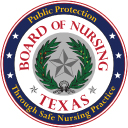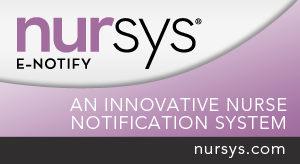Practice - Delegation Resource Packet
The RN delegation rules have been revised on several occasions with the most recent revisions in effect on February 19, 2015. As the rule title indicates, Rule 224 Delegation of Nursing Tasks by Registered Professional Nurses to Unlicensed Personnel for Clients with Acute Conditions or in Acute Care Environments governs RN delegation to unlicensed personnel in acute care environments or for clients with acute conditions. Rule 225 RN Delegation to Unlicensed Personnel and Tasks Not Requiring Delegation in Independent Living Environments for Clients with Stable and Predictable Conditions relates to RN delegation and tasks that may be exempt from delegation in the independent living environments for clients with stable and predictable conditions. The delegation rules were revised to add clarity and guidance for RNs choosing to delegate. However, many find delegation to be a perplexing concept with multiple nuances. This information packet was created to afford RNs clearer direction for delegation in a variety of settings thereby improving the delegation process.
- Conflict Resolution Model
- Delegation and the Advanced Practice Registered Nurse
- Delegation FAQs
- Links to Delegation Resources
- Rule 224 - Flow Chart
 PDF
PDF - Rule 225 - Flow Chart
 PDF
PDF - Delegation Principles
 PDF
PDF - Delegation Don'ts
 PDF
PDF - School Nurse Delegation
 PDF
PDF
Conflict Resolution Model
House Bill 456 mandated that the Texas Board of Nursing appoint a task force to review and make recommendations regarding provision of health maintenance tasks to persons with functional disabilities in independent living environments, including the analysis of "procedures for resolving disagreements between clients and registered nurses or home and community support service agencies about the appropriateness and safety of delegating or assigning tasks." This memorandum discusses the issue of dispute resolution procedures in registered nurse assessment, delegation and application of Board Rule 225 in determining what tasks can be performed by an unlicensed person and provides a general position to be taken by the Board under its jurisdiction.
The practice of a professional nurse requires substantial specialized judgment and skill, the proper performance of which is based on knowledge and application of the principles of biological, physical, and social science as acquired in an approved school of nursing. The practice of nursing requires a person be licensed by the Texas Board of Nursing and be responsible for applying the minimum standards of nursing regardless of the nurse's practice setting. Nurses who violate any part of the Nursing Practice Act or Board rules risk having their license restricted or even taken away by the Board. It is within this licensure liability context that the proper assessment and delegation of certain tasks to unlicensed individuals is authorized by Board regulations. The registered nurse retains licensure responsibility for assessing and delegating authorized tasks. It remains within the discretion of the licensed nurse to determine whether the circumstances exist for proper utilization of unlicensed persons to perform tasks authorized by Rule 225.
It is not uncommon to have disagreement between a client and a registered nurse as to what tasks can and should be properly delegated. Although the Board directs the RN to work with the client in the management of the client's health care needs, it has always been the policy of the Board to defer to the expertise of licensed nurse as to the assessment and delegation of certain tasks. There exists no statutory basis to require that a licensed nurse delegate that which he or she does not believe is appropriate to delegate.
The Board's jurisdiction is over registered nurses and does not include the responsibility to regulate agencies providing home and community support services or their policies concerning delegation or dispute resolution. However, the directives of HB 456 does require review and recommendations which speak to dispute resolution. It is anticipated the development of separate "independent living environment" rules may make it easier for the registered nurse and client to cooperate more than ever in the area of client assessment and delegation of nursing tasks.
The Board believes that the single most effective tool for avoiding disagreements concerning nurse assessment and delegation will be the effective education of nurses, clients, and agencies on the value and usefulness assessment and proper delegation. However, it would be naive to suggest future disputes will be resolved simply by implementing new, more understandable rules.
It is apparent that the most critical disagreements between nurses and clients concerning nurse assessment and delegation occur while clients are receiving health services associated with publicly funded programs. As previously discussed, these programs are not within the Board of Nurse Examiner's jurisdiction to regulate and the Board cannot mandate dispute resolution procedures be implemented by those agencies who do regulate those programs. Nevertheless, it is the Board's understanding that many, but not all, programs available for assistance to persons with functional disabilities do have policies in place to help resolve disputes between the nurse and client when they arise. It is recommended that nurses should make themselves aware and be compliant with any dispute resolution processes implemented by an agency.
For those programs which have not implemented dispute resolution procedures they should be encouraged to do so. The myriad of procedures which may be effective in resolving disputes are numerous and there does not appear to be one method to be considered better than others. However, it is recommended that dispute resolution procedures include the following progressive procedures:
- The clients have a right to be aware of policies and procedures which affect dispute resolution. It recommended that clients receive information regarding dispute resolution and/or whether a dispute resolution process is available at all. Similarly, because clients are consumers who often have consumer choices, it is recommended that agencies and programs be required to inform clients as to whether the agency or program has a dispute resolution system available before services begin.
- Open and face to face discussions between client and nurse designed to clarify the positions of parties relative to the assessment and delegation. Each party should allow the other to explain the reasons for their position and be allowed to educate the other as to the basis of their opinion.
- Failing a mutually agreed understanding after a frank client/nurse discussion it may be necessary to request third party intervention with a type of peer mentor or mentors who can understand the divergent positions and regulatory framework of assessment and proper delegation. The peer mentor or mentor team would be a person or persons who can understand, educate and potentially resolve individual disagreements.
- Lastly, a dispute resolution process should allow for the parties to have a right to terminate the nurse/client relationship when attempts at dispute resolution fail. The nurse should not be required to delegate when he or she sincerely disputes the safety of delegation based on an appropriate assessment and the client should be allowed to choose another nurse who may be willing to reassess and appropriately delegate under his or her license.
Delegation and the Advanced Practice Registered Nurse
May an Advanced Practice Registerd Nurse (APRN) delegate tasks to other nurses or unlicensed assistive personnel using the same rules a physician uses?
No. Advanced practice registered nurses are regulated solely by the Texas Board of Nursing. As RNs, advanced practice registered nurses may only delegate tasks to unlicensed staff or assistive personnel utilizing the applicable RN Delegation Rules 224 or 225 as appropriate and in compliance with Rule 217.11(3)(B). Advanced practice registered nurses are not authorized to exceed the delegation criteria in Rules 224 and 225.
With regard to other nurses, it is important to note that an advanced practice registered nurse may make an assignment to another nurse that takes into account his/her scope of practice and level of licensure [Rule 217.11(1)(S)]. An advanced practice registered nurse may not assign tasks to RNs or LVNs that exceed the RN or LVN scope of practice, even if the advanced practice registered nurse agrees to co-sign the RN's or LVN's documentation. An advanced practice registered nurse's co-signature for something that is beyond the RN's or LVN's scope of practice does not legitimize the RN's or LVN's actions. A nurse never functions "under the license" of another nurse nor does a nurse "delegate" to another licensed nurse. Board rules are accessible in their entirety here:
- Texas Board of Nursing Rules and Regulations PDF

- Texas Administrative Code - Title 22 - Examining Boards Part 11 Texas Board of Nursing, http://info.sos.state.tx.us
Rules and Regulations Reference Resources:
The outdated Rules and Regulation links below are provided for reference purposes. These rules will be cited for violations of statutes that occurred during their tenure. See the "Unprofessional Conduct Statutes/Rules Timeline" below.
The Texas Code Construction Act provides that any violation of the statute before it is repeal and any investigation or proceeding instituted will continue as if the statute had not been repealed or amended unless the penalty is reduced by a reenactment, revision, or amendment of a statute. See Tex. Gov't Code Ann. §311.031. This general saving clause also applies to "each rule adopted under a code." See id. §311.002(4).
Former versions of the rules and regulations are available upon request.
Delegation Resources Links
PLEASE NOTE: This list is not intended to be all inclusive, but rather a site to initiate a search for websites from a variety of sources for nurses wishing to improve their delegation skills. If you find other delegation resources that should be included in this list, please contact the Texas Board of Nursing at webmaster@bon.texas.gov
National Council of State Boards of Nursing, www.ncsbn.org
This organization has a variety of articles and tools pertaining to delegation including a video and facilitation package.
The American Nurses Association, www.nursingworld.org
Position statement and other publications on working with unlicensed assistive personnel.
Nursing Center, www.nursingcenter.com
Website where you can gain access to the latest articles on a variety of nursing subjects, including delegation.
School Nursing:
The National Association of School Nurses, www.nasn.org
Texas Department of State Health Services School Health Program, www.tdh.state.tx.us/schoolhealth/
Home Health Nursing:
Texas Association for Home Care, www.tahc.org
Medical-Surgical Nursing:
Academy of Medical-Surgical Nurses, www.medsurgnurse.org
Position statement on working with unlicensed assistive personnel.
Perioperative/Perianesthesia Nursing:
American Society of PeriAnesthesia Nurses, www.aspan.org
Position statement on working with unlicensed assistive personnel.
Association of periOperative Registered Nurses, www.aorn.org
Position statement on working with unlicensed assistive personnel
Emergency Nursing:
Emergency Nurses Association, www.ena.org
Position statement and other publications on working with unlicensed assistive personnel
Gastroenterology Nursing
The Society of Gastroenterology Nurses and Associates, Inc., www.sgna.org
Role delineation statements pertaining to unlicensed assistive personnel.



